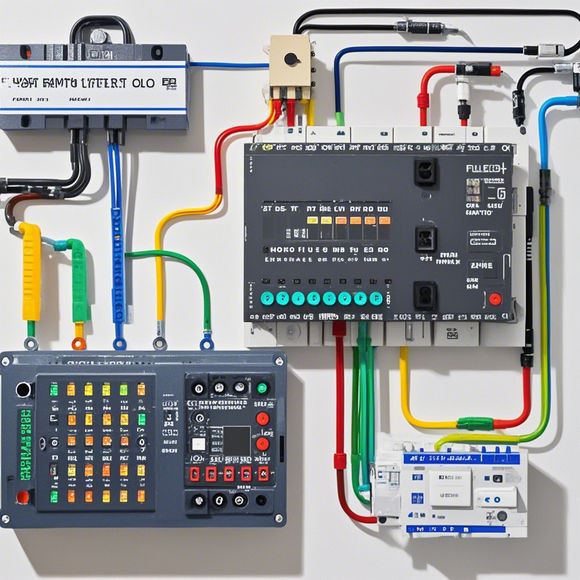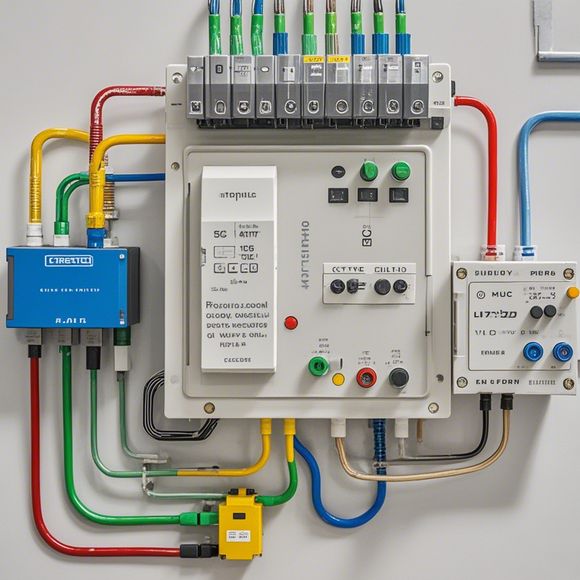PLC Controller
PLC Controller is a device that can be used to control various processes and systems. It stands for Programmable Logic Controller, which means it's programmable and can be controlled by a computer or other devices. PLC controllers are widely used in industries such as manufacturing, automation, and industrial control. They are designed to perform complex tasks such as controlling robots, monitoring sensor data, and managing communication between different systems. With the help of PLC controllers, businesses can improve efficiency, reduce costs, and increase productivity.
Introduction:
Hello everyone, today I am going to talk about a crucial piece of hardware in our industry. This is the PLC controller. It's like the brain of your factory, making all the decisions for how your production line should operate. Without it, your business wouldn't be able to function properly, and you'd be at a huge disadvantage compared to other companies in your industry. So let's dive into what a PLC controller is and why it's so important.

Definition of PLC Controller:
A Programmable Logic Controller (PLC) is a digital control system used to automate industrial processes. Unlike traditional mechanical controllers that rely solely on manual intervention, PLC controllers use software to perform complex calculations and make precise decisions based on data input from sensors and actuators. This means they can respond quickly and accurately to changes in conditions, which is vital in industries like manufacturing or energy production where time is money.
The Importance of PLC Controllers:
1、Automation: PLCs are the backbone of modern automation systems. They can be programmed to perform any task that needs to be automated, from simple tasks like feeding machines to more complex ones like controlling a whole assembly line. This automation makes work faster, more efficient, and safer.
2、Cost-Effective: Compared to traditional mechanical controls, PLCs are more cost-effective. You only need to buy the hardware, and then you can program the software to control the machine. There's no need for expensive tools or specialist technicians, as the software is designed to run on most computers.
3、Robustness: PLCs are built to withstand harsh environments, including high temperatures, vibrations, and dust. They can handle a wide range of inputs and outputs, making them ideal for applications where other control systems might fail.

4、Customization: With PLCs, you can customize the software to meet specific needs. For example, you might need to control a machine that requires different speeds or power levels depending on the product being produced. By programming the PLC with the appropriate algorithms, you can achieve this without having to purchase multiple pieces of equipment.
5、Maintenance: PLCs are much easier to maintain than traditional controls. Since they use software, they don't have moving parts or internal mechanisms that can break down over time. All that's needed is regular software updates to keep the system running smoothly.
6、Energy Efficiency: PLCs are designed to conserve energy by minimizing unnecessary movement and motion. This means they can help reduce your carbon footprint and save money on energy bills.
7、Scalability: As your business grows, so does the number of machines and processes you need to manage. A robust PLC system can easily be upgraded to accommodate new devices and workflows.
8、Safety Features: Many PLC systems come with safety features such as emergency stop buttons, alarm systems, and automatic shut-down options. These features can help protect your workers from accidents or hazards.
9、Interoperability: PLCs can be connected to other systems using standard protocols like Ethernet or PROFINET. This means you can integrate your PLC system with other systems in your plant, such as SCADA systems, HMI displays, or even mobile devices.

10、Innovation: The PLC field is continuously evolving with new technologies and capabilities being introduced regularly. From microcontrollers integrated into PLCs to cloud-based solutions for remote monitoring and control, there's always something new to learn and explore.
Conclusion:
In conclusion, the PLC controller is an essential piece of machinery that helps businesses run smoothly and efficiently. It provides the flexibility, reliability, and cost savings that modern manufacturing demands. Whether you're looking to streamline a small workshop or build a large industrial complex, a PLC controller is the key to achieving those goals. So don't hesitate to get your hands on one – it could make all the difference in the world!
Content expansion reading:
Articles related to the knowledge points of this article:
PLC Controller Selection Guide for Foreign Trade Operations
PLC Controller for Manufacturing Automation
Plumbers Rule! The Role of PLC Controllers in the World of Waterworks
The Role of Programmable Logic Controllers (PLCs) in Foreign Trade Operations
Connecting a PLC Controller to Your Computer
PLC Controllers: A Comprehensive Guide to Understanding Their Prices